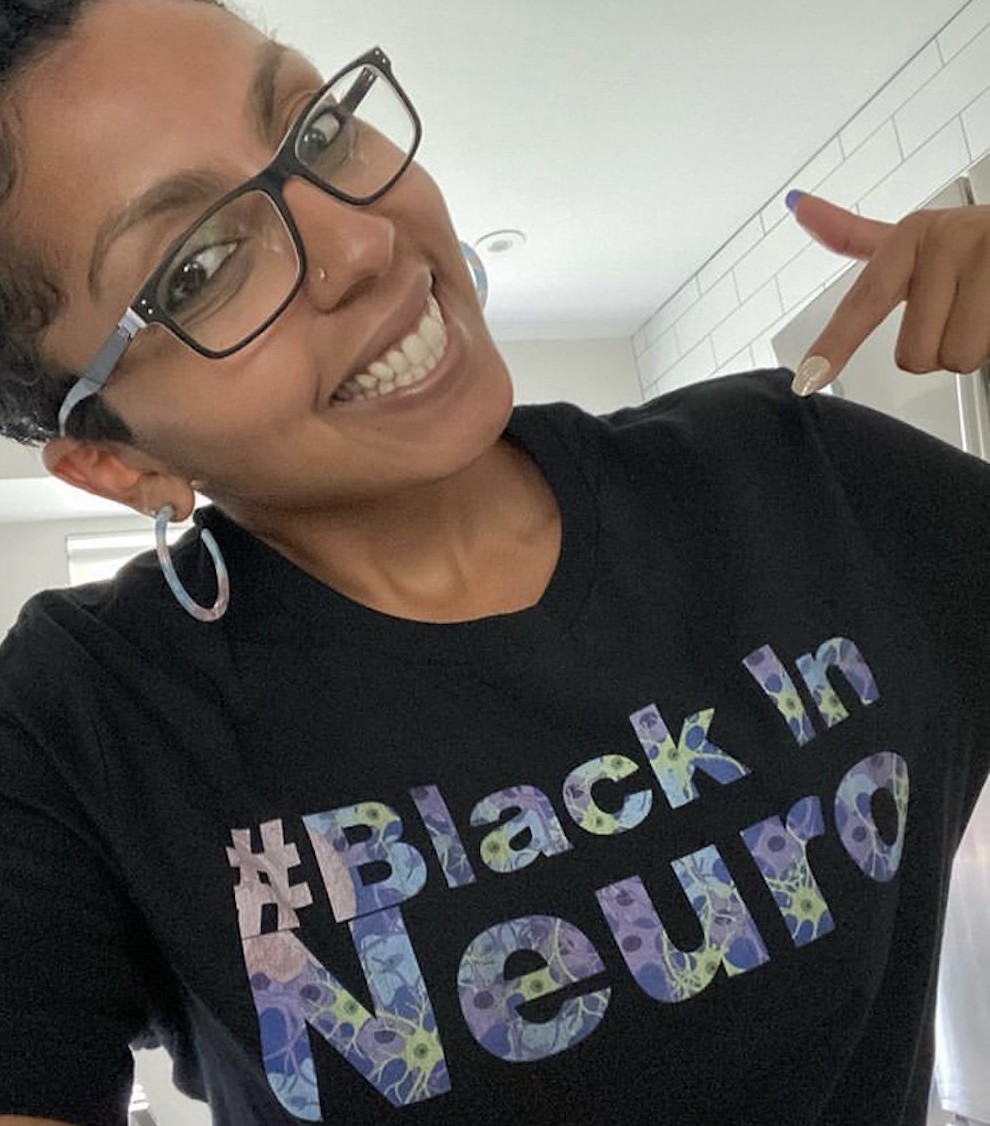In Brief: Black Scientists Spotlight Successes; Instagram Becomes Hub for Graphics
By Greg Beaubien
September 2020
Black Scientists Use Hashtags to Spotlight Successes and Struggles
Black physicians and scientists are using social media hashtags such as #BlackInNeuro, #BlackInChem and #BlackBirdersWeek to highlight the achievements and struggles of their peers.
In late May, with support from the National Audubon Society, herpetologist Chelsea Connor co-founded #BlackBirdersWeek to connect with fellow naturalists and share personal stories. When working outdoors in the field, “You have to go to such a length so people know you’re ... not up to anything,” she tells USA Today.
In early July, Tanisha Williams, a postdoctoral fellow in botany at Bucknell University, started a social media campaign for Black and Indigenous botanists and their allies. In late July, #BlackInNeuro week — sponsored by institutions including Stanford Biosciences and Harvard’s Division of Medical Sciences — sought to showcase neuroscientists of color and build relation- ships within the field.
So far, Williams says the social media has challenged stereotypes in her field: Other botanists are taking note of the need to listen to and connect with botanists of color.
Beyond Photos, Instagram Becomes Hub for Text and Graphics
“Instagram felt like a place for a clean, fresh start,” says Mosheh Oinounou, a digital consultant and former TV news producer. With people feeling “overwhelmed by the news” over the past few months, Oinounou created an Instagram account where he has posted headlines, numbers and fact-checks about the pandemic.
The trend away from lighthearted photos and toward health and political information on Insagram is reflected in the growth of accounts such as @soyouwanttotalkabout, which exclusively posts info-carousels on progressive political topics. The account’s followers have exploded from 125,000 in mid-June to nearly a million as of Aug. 1. Another Instagram account, @educatorsforjustice, reportedly has soared to 160,000 followers since it started in June.
Should Your Company Take Positions on Controversial Issues?
In America’s increasingly charged political climate, some businesses are taking stances on contentious issues.
But how a company’s sociopolitical activism affects its sales and stock-market performance depends on whether that activism aligns with the values of customers and employees, and rules of state regulators, according to research published in the Journal of Marketing.
As the University of Arizona’s website reported, Nooshin Warren, the study’s co-lead author, said that purpose-driven corporate actions have evolved from philanthropy for widely supported causes such as cancer research to public stances on divisive issues like gun control. They may want to advance society, but “societal good is debatable, political and partisan,” she says.
When corporate-activism misaligns with stakeholders, within five days the company’s stock-market value decreases by 2.45 percent compared to market expectations. But when it aligns with stakeholder values, the price tends to rise by .71 percent, the research says.
Corporate actions have more impact than statements, Warren said, “But it is important to stay authentic, as society is watching carefully and will hold firms accountable for their actions as well as for their silence.”
NCAA Permits Patches Celebrating Causes on Collegiate Athlete Uniforms
College athletes can now wear patches on their uniforms to honor causes they support, the NCAA announced on July 30.
As ESPN reported, the new rule allows athletes to display one patch on the front of their uniform and one on the back. The front patch must not exceed 21⁄4 inches in size and may be used as a “commemorative/memorial patch (names, mascots, nicknames, logos and marks) intended to celebrate or memorialize people, events or other causes,” the NCAA said.
On the back of the uniform where the player’s name is traditionally located, the second patch “will allow names/words intended to celebrate or memorialize people, events or other causes,” the NCAA announced, adding that “The names or words may vary by team member.”
Each athlete still requires conference and school approval to wear the patches. The NCAA announcement comes amid the activism and protests — including from some collegiate athletes — that have gained strength since the death of George Floyd in May.



